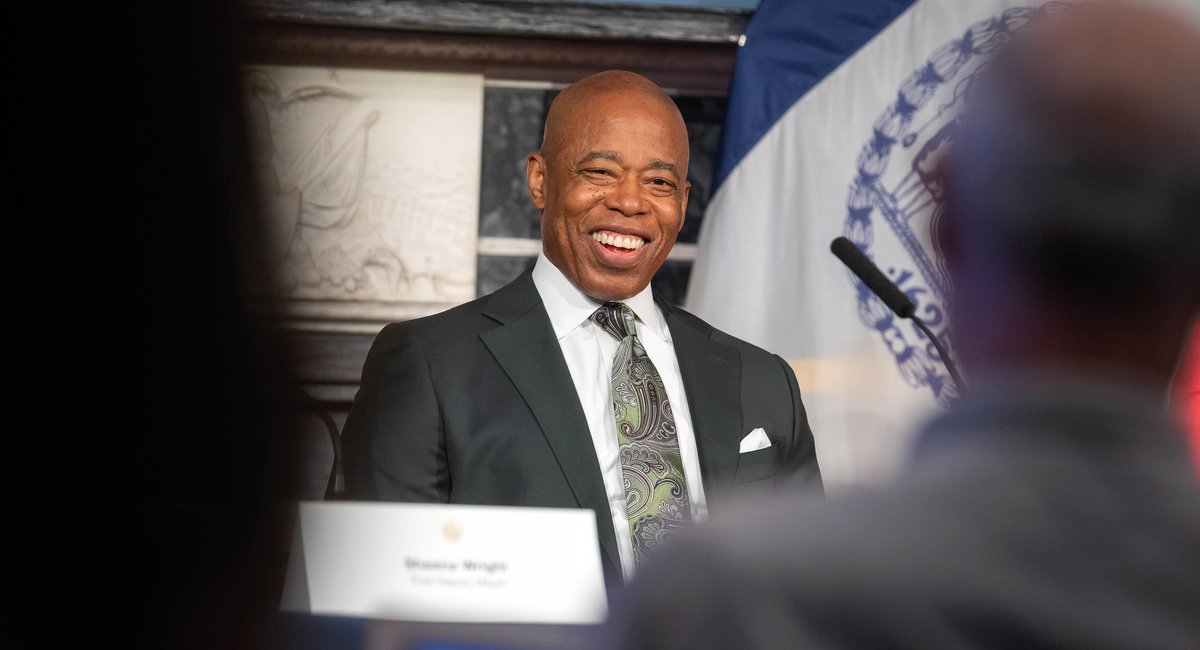New York City is embarking on a top-to-bottom review of its charter, the city’s equivalent of a constitution. Mayor Eric Adams formed a Charter Revision Commission in May, and it’s been holding public hearings in the weeks since. On Monday, the commission released a preliminary report with its first round of proposed changes.
City Hall reporter Elizabeth Kim joined host Janae Pierre on WNYC to explain the process and what could change for New Yorkers. An edited version follows below.
Janae Pierre: This isn’t a new exercise for the city. Why do mayors and city officials call for charter reviews, and what’s come out of them in the past?
Elizabeth Kim: The city’s last charter review took place in 2018, under former Mayor Bill de Blasio. Some New Yorkers might remember that was the year of dueling charter revision commissions. The City Council has the authority to form one, too, and it convened its own competitor to de Blasio’s commission.
But essentially, it’s an opportunity to reshape and reform city government by gathering feedback from the public and civic groups. The commission will issue recommendations on charter changes, but it will ultimately be city voters who decide. In November, the proposals will be put forward as ballot referendums.
A recent example of what’s come out of these commissions is ranked-choice voting, which got on the ballot in 2019. Voters overwhelmingly supported the idea, which represented a big change in the way New Yorkers vote in municipal elections: ranking five candidates as opposed to choosing just one.
Experts consider the 1989 charter revision process the most consequential, because it redefined the structure of city government. The commission that year eliminated the city’s powerful Board of Estimate, which shaped land use and budget decisions but had been ruled unconstitutional by the U.S. Supreme Court. In turn, it expanded the powers of the City Council and brought us the system of government that we know today.
What’s the motivation behind Mayor Adams’ latest effort? Will mayors typically spell out an objective for these commissions?
Previous mayors have defined the scope or mission of the charter revision commission. De Blasio, for example, said he wanted to tackle campaign finance reform. Bloomberg, a Democrat turned Republican turned Independent, was very interested in exploring nonpartisan elections.
Mayor Adams’ formation of his commission really caught most people in City Hall by surprise. He announced the commission in late May, the same week that City Council Speaker Adrienne Adams announced that she was introducing a bill that would give the Council power to approve more of the mayor’s commissioner-level appointments.
That “advice-and-consent” measure — which passed earlier this month in the Council — would effectively alter the balance of power at City Hall. But it requires a ballot referendum to go into effect because it would change the charter.
Here’s the catch: If the mayor’s commission could present its own set of ballot referendums, Adams could effectively delay the speaker’s legislation from going before voters in November.
So is the commission a bit of political gamesmanship by the mayor? And who’s on it?
Perhaps. Administration officials are denying that there’s any desire to thwart the speaker’s proposal, although they have strongly pushed back against the idea of giving the Council more say in the appointment process.
Instead, the mayor’s office has said that Adams became interested in pursuing charter reform after having conversations with different community stakeholders. The office maintains that the timing of its creation was not related to the speaker’s bill.
As far as who sits on the commission, there are 13 members who are appointed by the mayor. Adams, like previous mayors, has picked political allies who’ve demonstrated their loyalty to the mayor. These include donors and lobbyists. Commission chair Carlo Scissura, the president of the Building of Congress, is a registered lobbyist before the city.
The commission released its first report on Monday. What is it proposing so far?
The report includes a host of proposals, many of them which seem rather dry and uninteresting on the surface: changes in the budget and capital process; how film and waterfront permitting works; increasing the public comment period on public safety legislation in the Council; creating a new agency dedicated to helping the city grow its contracts with minority- and women-owned businesses.
But there will undoubtedly be pushback on some of these proposals, especially anything that could curb the Council’s power or interfere with NYPD accountability. Speaker Adams has already accused the commission of being a tool by the mayor to undermine her advice-and-consent proposal. She called the report “wholly unserious” and said the commission has “made a mockery of a very serious process.”
What happens next?
On Wednesday, the commission is expected to vote to accept the preliminary report. And the commission will continue to hold public hearings. The commission will then gather that feedback and use it to shape the final list of proposals.
Ultimately, the members will decide what ballot questions to put before voters in November. But you can expect more pressure from the speaker and possibly even a legal challenge to get her initiative on the ballot.
